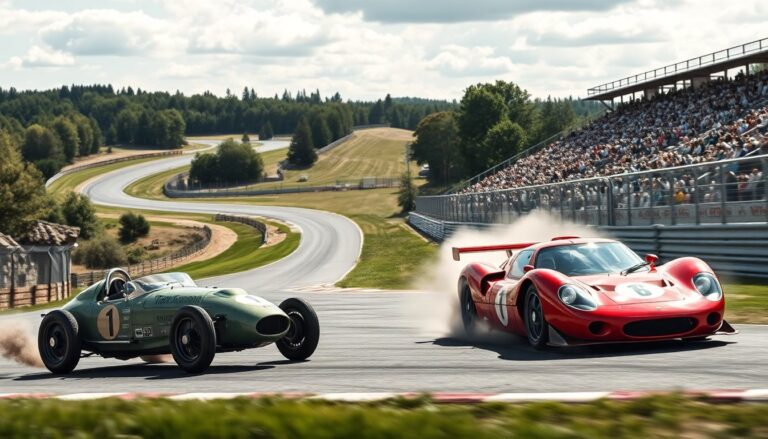Argomenti trattati
Motor sport transcends mere competition; it embodies a dynamic industry that continually evolves with advancements in technology and shifts in culture. From the early days of racing on unpaved roads to the exhilarating high-speed events of today, the journey of motor sport is marked by innovation, passion, and an unyielding quest for speed. This article explores the historical timeline of motor sport, highlighting its significant transformations and cultural influence worldwide.
The origins of motor sport
Motor sport traces its roots back to the late 19th century, marked by the first automobile races. The Paris-Rouen race, held in 1894, is often recognized as the inaugural event. This race emphasized endurance over speed, reflecting the nascent state of automotive technology at the time. The automobile industry was just beginning to develop, and these early competitions served as critical testing grounds for emerging technologies.
The significance of early competitions
The Paris-Bordeaux-Paris race in 1895 marked a pivotal moment in automotive history. This first formal racing event demonstrated the potential of motor vehicles and ignited public enthusiasm for automotive technology. As racing gained traction, manufacturers faced increasing demand for improved and faster cars, driving continuous innovation. These foundational competitions set the stage for what would evolve into a multi-billion dollar industry.
The golden age of motor sport
The early 20th century is often referred to as the golden age of motor sport. The establishment of organizations such as the Fédération Internationale de l’Automobile (FIA) led to the development of structured racing formats. Iconic events like the Monaco Grand Prix and the 24 Hours of Le Mans emerged, attracting global audiences and significantly enhancing the popularity of motorsports.
Technological advancements and safety measures
As competition grew fiercer, the emphasis on safety also intensified. The 1950s and 1960s marked significant advancements in vehicle technology and safety regulations. The introduction of roll cages, seat belts, and enhanced helmets notably reduced the risks associated with racing. Manufacturers channeled resources into research and development, leading to innovations that have since influenced consumer vehicles.
The modern era of motor sport
Today, motor sport spans a range of disciplines, including Formula 1, rally racing, and NASCAR. The rise of digital technology has transformed fan engagement with the sport. Live broadcasts, real-time data analytics, and social media platforms have fostered a more inclusive atmosphere for both fans and participants.
The evolving landscape of sustainability in motor sport
Looking ahead, discussions surrounding sustainability and the environmental footprint of motor sport are gaining momentum. Initiatives like the Formula E series, which focuses on electric racing, signify the industry’s proactive stance on climate change. The incorporation of hybrid technology and improvements in electric vehicle performance are set to define the future of motor sport.
Furthermore, the impact of motor sport extends beyond the racetrack, influencing automotive design, safety regulations, and urban mobility solutions. Innovations derived from racing are now integrated into everyday vehicles, improving performance and safety for all drivers.
The evolution of motor sport encapsulates a compelling narrative of human ingenuity and technological progress. This industry consistently adapts to shifting societal values and innovations, solidifying its role as a key element of our culture. Motor sport continues to inspire future generations, reflecting the passion and creativity that drive it forward.

